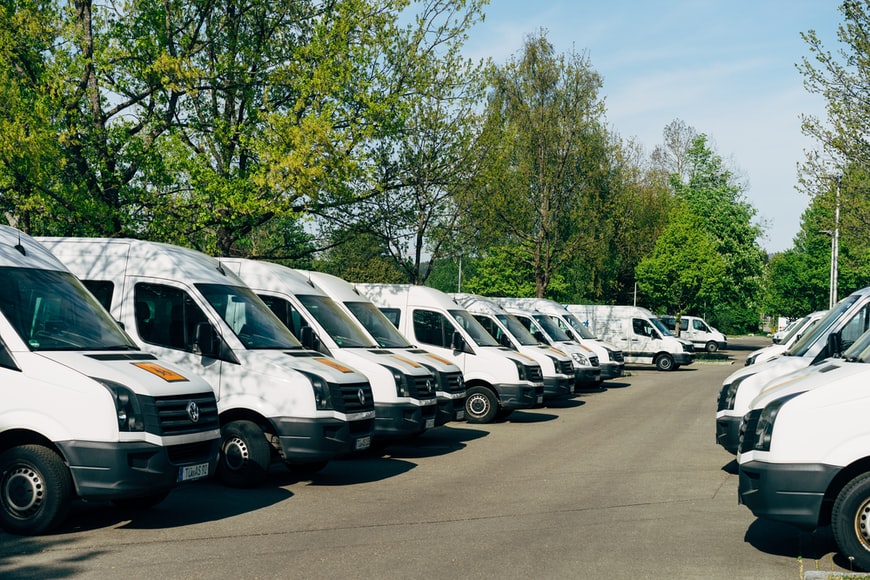What You Need to Know Before Starting a Fleet Company
5 Mins Read
Published on: 16 December 2021
Last Updated on: 10 December 2024

Have you been working as part of a fleet? Are you seeking to turn this experience into a more profitable venture? If so, you are likely exploring the possibility of beginning your own fleet company.
For a business that is willing to go the extra mile, there’s always room to join the seemingly packed fleet industry. However, this is not something that can be done without plenty of planning and consideration.
3 Things You Have to Know Before Starting a Fleet Company
A Fleet company is like an airline company. Therefore, when you plan to start a fleet company, you must look at some factors before starting the company, such as the security aspects and license factors.
Choosing a reliable and trusted partner through an online comparison site like comparison can help you optimize the performance of your fleet company.
You can find out and compare the best fuel cards, insurance policies, and many other areas that can help you run the business successfully and deliver proven results.
If you’re not quite sure where to begin in that regard, this starter guide is here to help. Below are some essential tips on how to start a fleet business.
1. Understand Compliance Regulations

Before you start a fleet company, it makes a lot of sense to learn about the regulations set by the U.S. Department of Transportation. If you’re not compliant, it can lead to everything from heavy financial penalties to a spell in jail.
Fortunately, there are DOT compliance solutions available that make this step easier than it may seem. For instance, specialist fleet technology can help with logging vehicle inspection reports, calculating international fuel tax, tracking how many hours a driver has been on the road, and so on.
All of this information is necessary for filing the paperwork required to comply with the DOT. To start a fleet company, you first need to look at government rules and policies.
Because unless you do not maintain the proper rules and regulations for your business, you can not get the fleet licenses. Most criteria are to know the purpose of the fleet business.
2. Research Your Needs
You must do something other than run a fleet business. You also can’t do it from your current car. The result: it’s necessary to hire the right personnel and purchase equipment.
In terms of personnel, you may want to hire a fleet crew. How many drivers you have is dependent on your initial ambition. If you’re starting small and plan to be on the road as well, you might only hire one or two drivers.
Whatever the situation, research how much it’ll cost to hire employees – including benefits and any other expenses – over an annual period and factor this into your startup budget.
The same is applicable to your equipment needs. The vehicle/s will be the most significant expense. Never cheap out in this area, as it’ll only cost you more in the long run.
Also, remember to budget for fleet company management technology and tools to move shipments to and from the truck.
Moreover, it is important to strategically manage fuel expenses for your fleet, as it is a crucial part of operating costs and can heavily impact your business profitability.
3. Look At Your Financing Options

When starting your business, chances are you won’t have the necessary funds in your bank account. Even if you did, you’re unlikely to want to use up all of your savings to get up and run. As a result, you need to research the available financing options.
If a traditional bank loan is a route you want to take, ensure your business plan is crafted professionally with all relevant information.
If you think acquiring a bank loan is too challenging and time-consuming, other options include online loans, guaranteed loans, and fleet company business credit cards.
Always review the pros and cons of each financing option – you will want to cover all bases. Also, before you apply, make sure you select the right amount to cover all of your initial and short-term expenses.
Should You Get a Fleet?
We have mostly covered all the major points on how to start a fleet business. However, the discussion is still ongoing. We have told you about the steps that you need to take, but should you even get it?
Well, you will only understand if you tally the pros and cons of owning your own fleet. In this section, we will be looking at that. Therefore, stick around to know more.
Here we go!
Cost Transparency
One of the most significant aspects of having your own fleet is the overall cost transparency. In other words, you will have a direct line of clarity of the cost that you need to bear.
This will help you budget yourself with more ease and clarity. Therefore, it can also help you bring down the overall cost. This can significantly help you move the profit margin higher.
Increased Risk
Having your own fleet sounds excellent, but you must remember that managing your own fleet is also about taking risks head-on. This might sound cool now, but it can be a tedious job in the long run.
Since you will be working with your fleet, you are responsible for the safe travel. You cannot expect other people to ace the job. The onus will fall on you. Therefore, this can become tedious if you are already managing several departments.
As a result, managing your own fleet can be a hazardous and tedious job to complete.
Conclusion:
While you are planning to start your fleet company, you always have to look at these factors before starting your business. This is because starting a fleet company is a long-term business investment.
Hence, it is better to check some of the factors before stepping into the actual business. Among these three options, the financial factors are the essential factor that will help you plan your business investment policies.
Read Also:


















Comments Are Closed For This Article